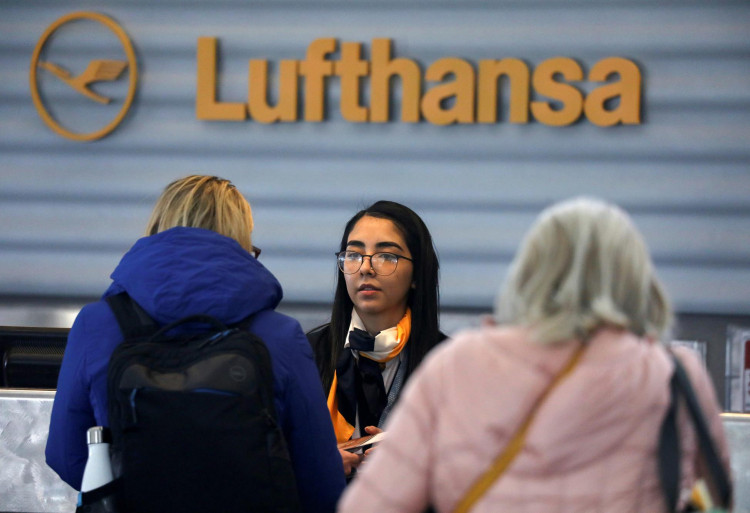More than 1,000 Lufthansa flights were canceled Wednesday because of a one-day strike by the airline's German ground staff, affecting tens of thousands of passengers in the latest travel turmoil to hit Europe.
About 134,000 passengers had to change their travel plans or cancel them altogether. At least 47 connections had already been canceled on Tuesday, German news agency dpa reported.
Lufthansa's main hubs in Frankfurt and Munich were most affected, but flights were also canceled in Duesseldorf, Hamburg, Berlin, Bremen, Hannover, Stuttgart and Cologne.
The airline advised affected passengers not to come to the airports because most of the counters there would not be staffed anyway.
Labor union Verdi service workers' union announced the strike on Monday as it seeks to raise pressure on Lufthansa in negotiations on pay for about 20,000 employees of logistical, technical and cargo subsidiaries of the airline.
Lufthansa had offered an increase of 150 euros per month for the rest of this year and another 100 euros from the start of 2023, plus a 2% increase from mid-2023 dependent on the company's financial results.
The walkout comes at a time when airports in Germany and across Europe already are seeing disruption and long lines for security checks because of staff shortages and soaring travel demand.
As inflation soars, strikes for higher pay by airport crews in France and Scandinavian Airlines pilots in Sweden, Norway and Denmark have deepened the chaos for travelers who have faced last-minute cancellations, lengthy delays, lost luggage or long waits for bags in airports across Europe.
Travel is booming this summer after two years of COVID-19 restrictions, swamping airlines and airports that don't have enough workers after pandemic-era layoffs.
Airports like London's Heathrow and Amsterdam's Schiphol have limited daily flights or passenger numbers.
The Lufthansa strike started early Wednesday at 3:45 a.m. local time and is set to end early Thursday. Such "warning strikes" are a common tactic in German labor negotiations and typically last from several hours to a day or two.
Verdi is calling for a 9.5% pay increase this year and says an offer by Lufthansa earlier this month, which would involve a deal for an 18-month period, falls far short of its demands.
Lufthansa's chief personnel officer, Michael Niggemann, argued that "this so-called warning strike in the middle of the peak summer travel season is simply no longer proportionate."
Lufthansa and Verdi have held two rounds of wage negotiations so far. A third is scheduled for August 3 and 4.






